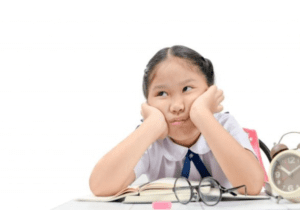Parents – Did You Know ? It Isn’t Only About Your Child
This article has been researched and written by Sara Caroppo. AI has not been used in producing this article.
One of the most common things parents say when walking into the therapy room is: “We just need some help with our child’s behavior.”
It makes perfect sense. When a child is struggling — especially in ways that are disruptive or emotionally intense—the instinct is to focus on the child as the source of the problem. What often goes unnoticed, however, is how deeply a child’s behavior is connected to their environment, particularly to the tone, reactions, and emotional cues of their caregivers.
Why Is it important to work with parents too?
As a Child Psychologist, I work closely with parents. Not to judge or criticize, but because parenting plays a central role in shaping how children learn to regulate their emotions, respond to challenges, and build relationships. Change begins in the family system, not just within the child.
Everyday Parenting and Behavioral Psychology:
Many parents are already applying psychology in daily routines—often without realizing it.
- Positive reinforcement happens when a parent praises a child for helpful behavior, such as tidying their room. If sincere and consistent, this praise increases the likelihood of the behavior being repeated.
- Negative punishment involves removing a valued item or privilege, such as screen time, following unwanted behavior. The goal is to decrease that behavior over time.
These ideas go back to BF Skinner’s work in behavioral psychology. In his famous “Skinner’s Box” experiments, he showed how behavior can be shaped by rewards or by removing rewards. Children, like adults, respond to environments in patterned ways. If misbehavior consistently draws attention, it is reinforced. If calm behavior is ignored, it may fade. These quiet associations can be remarkably enduring.
When Effort Begins to Fade
Another important concept is learned helplessness, developed by psychologists Martin Seligman and Steven Maier.
This occurs when, after repeated setbacks or unclear responses from caregivers, a child begins to believe their efforts don ‘t make a difference. Over time, they may stop trying altogether.
Children in this state may appear anxious, disengaged, angry, or unusually passive. This is rarely laziness or defiance. More often, it signals that something important has been missed. When adult feedback is unpredictable or overly critical, even well-intentioned children can lose confidence in their ability to create change.
The Messages Behind the Moments
Every interaction between parent and child carries meaning. A raised eyebrow, a soft tone, a pause, a quick reaction—all of these shape a child’s understanding of themselves and the world. That’s why child therapy often begins with parents reflecting on the messages they send, often unintentionally. Behavior is never random—it’s communication, a response to what the child has learned about safety, connection, and expectation.
When parents respond with more awareness and consistency, the change is often visible in the child. Parental involvement is not simply part of the process—it is the process.
Managing Depression During Social Isolation
The outbreak of the global coronavirus pandemic is stressful for many people. Since the World Health Organization (WHO) declared the COVID-19 outbreak a global pandemic, regions across the world have mandated quaran…
What are Cognitive Behavioral Therapists?
Cognitive behavioral therapy (CBT) is a common type of talk therapy (psychotherapy) that has been demonstrated effective for a range of mental health struggles including anxiety disorders, depression, substance abuse …
Managing COVID-19 – Related Anxiety
The recent increase of COVID-19 cases in Europe and in the rest of the world has seen a great increase of strong emotions, such as overwhelming fear and worry, in our community. Despite the fact that the infection has…
What to Expect at Your First Family Therapy Session
Are you feeling a bit nervous about your first family therapy session? It’s very common to feel a bit apprehensive before starting any type of therapy. Therapy involves sharing personal information and intimate detail…
What do you really know about ADHD?
ADHD, or attention deficit disorder, is a commonly known mental health disorder and can be easily described by teasing apart its acronym. Most of us have been made aware of the condition through social media, advertis…
Taking Your First Steps to Seeing a Therapist
More often than not, the first step people take towards overcoming their mental illnesses, is making the decision to talk to someone about it, whether it’s a friend or a professional. It doesn’t help that our cultural…
The Benefits of Family Therapy
Family plays an essential role in our emotional, spiritual, and intellectual lives. Over the past few decades, the nuclear family has evolved and changed. Despite these changes to what a particular family unit include…
- « Previous
- 1
- …
- 4
- 5
- 6








